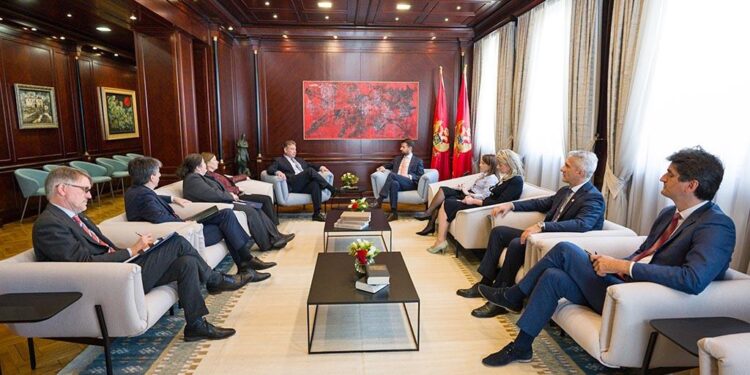The United States and Montenegro have taken a significant step forward in their bilateral defense cooperation with the recent conclusion of Immediate Response 25, a multinational military exercise aimed at enhancing joint readiness and interoperability. Hosted in Montenegro and highlighted by close collaboration between U.S. forces and Montenegrin partners, Immediate Response 25 underscores the enduring commitment of both nations to regional security and transatlantic partnership. The U.S. Embassy in Montenegro, in its official statement, emphasized how this exercise not only strengthens military capabilities but also reinforces the strategic ties that underpin the U.S.-Montenegro alliance.
Immediate Response 25 Enhances Military Coordination and Joint Training Exercises
Immediate Response 25 fostered enhanced military coordination by integrating U.S. and Montenegrin forces through a series of complex joint training exercises. These initiatives emphasized interoperability, communication, and rapid decision-making, enabling both forces to synchronize operations seamlessly in real-time scenarios. Key activities included live-fire drills, tactical movements, and command post exercises that tested the agility and responsiveness of participating units under simulated combat conditions.
The exercise featured collaborative efforts across multiple domains, including air, land, and cyber operations, reinforcing a comprehensive approach to modern warfare. Highlights of the coordination efforts included:
- Real-time intelligence-sharing protocols
- Joint logistics and supply chain management
- Combined strategic planning and execution
- Enhanced communication systems testing
These measures collectively contributed to elevating the readiness posture of both nations, strengthening their capacity to address emerging security challenges effectively.
| Exercise Component | Focus Area | Outcome |
|---|---|---|
| Live-Fire Drills | Tactical Precision | Increased accuracy & coordination |
| Command Post Exercises | Decision Making | Faster operational response |
| Cyber Defense Simulations | Network Security | Strengthened cyber resilience |
| Joint Logistics | Resource Management | Optimized supply chain |
Strengthening U S Montenegro Partnership Through Advanced Defense Capabilities
Joint efforts between the United States and Montenegro have significantly elevated the capabilities of both nations’ armed forces through the deployment of advanced defense technology and rigorous training programs. This collaboration fostered an environment of strategic readiness that benefits regional security in the Balkans. Key initiatives included shared intelligence operations, enhanced cyber defense measures, and coordinated rapid response drills, all designed to build resilience against emerging threats.
The partnership’s success is underscored by a set of tangible achievements that highlight interoperability and tactical advancement:
- Integration of cutting-edge communication systems across units
- Joint training exercises emphasizing urban and mountainous combat
- Expansion of Montenegro’s defense logistics and supply chain efficiency
- Implementation of combined cyber defense protocols
- Enhanced capabilities for humanitarian assistance and disaster relief
| Capability | U.S. Contribution | Montenegro Impact |
|---|---|---|
| Cyber Defense | Advanced AI-driven monitoring tools | Improved threat detection by 40% |
| Rapid Response | Joint drills & tactical scenarios | Reduced reaction time by 30% |
| Communications | Secure, interoperable radios | Streamlined command coordination |
Recommendations for Sustained Collaboration and Regional Security Development
Strengthening long-term cooperation between the United States and Montenegro requires a multifaceted approach that prioritizes transparency, regular joint exercises, and shared intelligence capabilities. To maintain momentum gained from Immediate Response 25, both nations should institutionalize communication channels that enable swift decision-making during crises. Additionally, investing in capacity-building initiatives tailored to Montenegro’s evolving security landscape will ensure that partnership efforts remain adaptive and resilient in face of new challenges.
Key recommendations include:
- Establishing a bilateral task force focused on emerging threats such as cyber warfare and hybrid tactics.
- Enhancing educational exchanges and training programs for military and civilian personnel to foster mutual understanding and interoperability.
- Promoting regional security frameworks that incorporate neighboring countries to encourage collective stability across the Western Balkans.
| Focus Area | Action Item | Expected Outcome |
|---|---|---|
| Cybersecurity | Joint defense simulations and info-sharing protocols | Increased resilience to digital threats |
| Training & Education | Exchange programs and bilingual military courses | Improved interoperability and trust |
| Regional Security It looks like your table got cut off at the last row in the “Focus Area” column. Here’s a completion for that final row based on the context of strengthening regional cooperation: | ||
| Regional Security | Multilateral exercises and coordinated border management | Enhanced collective stability and rapid threat response |
















